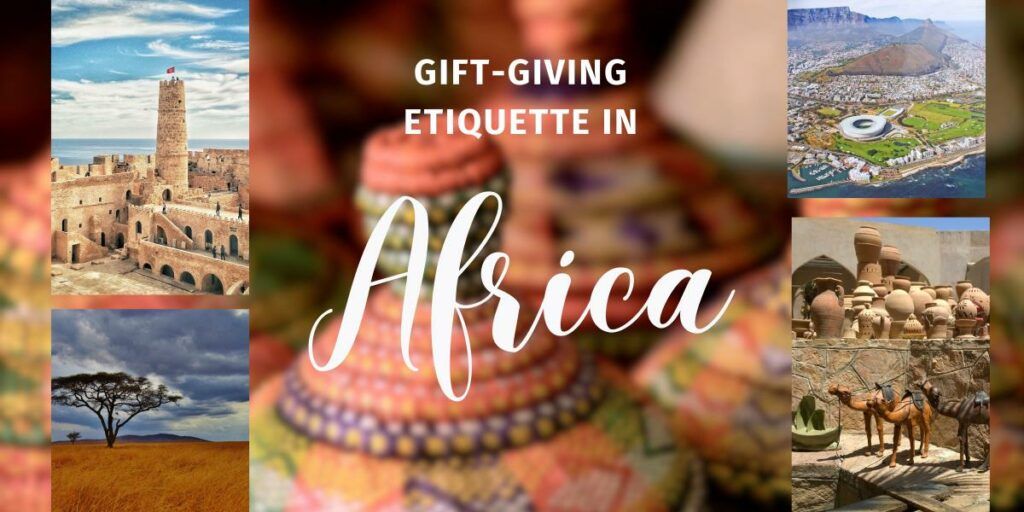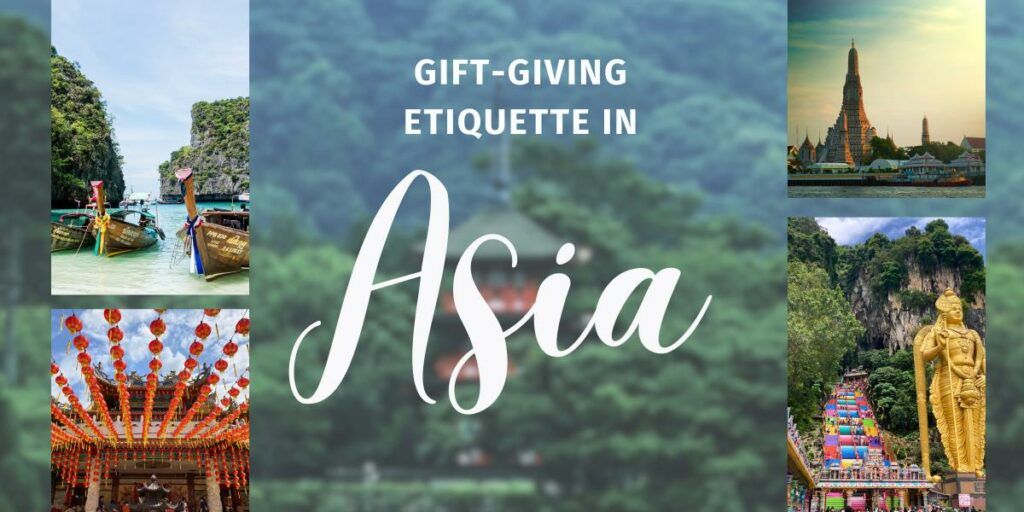Some of the links on this blog may be affiliate links. This means that if you make a purchase through these links, we may earn a small commission at no additional cost to you. We are a participant in the Amazon Services LLC Associates Program, an affiliate advertasing program designed to provide a means for us to earn advertising fees by linking to Amazon.com and affiliate websites.
Gift-giving etiquette in Latin America plays an important role in their cultures. However, their traditions are not as filled with symbolism and ancient customs as those in Asian countries. Giving a gift is a gesture of respect, gratitude, and appreciation. It symbolizes a sense of connection and goodwill and a small souvenir, thoughtfully chosen, can be more cherished than a luxurious present.
It’s helpful to show that you’ve considered the recipient’s preferences and interests when selecting a gift. Presentation matters in gift-giving etiquette in Latin America. This means that you should spend some time wrapping gifts neatly with a ribbon to add an extra touch of elegance.
Gifts As An Art Form In Argentinian
In Argentina, where the exchange of gifts is an art form, you should pay attention to certain cultural nuances. If you want to impress an Argentinian friend with the perfect gift, you should take the time to get to know the person’s likes and dislikes before selecting a gift. Nothing is more treasured in Argentina than thoughtful, genuine presents that reflect the relationship between the giver and the recipient.
While Argentina is an open-minded society, there are a few things to avoid. Steer clear of sharp objects, as they symbolize the severing of a relationship. Additionally, avoid gifting yellow flowers as they are associated with endings and saying goodbye.
Gifts are commonly exchanged on various occasions, such as birthdays, anniversaries, Christmas, and other religious holidays. Additionally, if you’re invited to someone’s home for dinner or a special celebration, bring a gift for the host or hostess. You can choose a bottle of wine, chocolates, flowers, candy, or pastries.
Gift-Giving Etiquette in Argentina
- You should wrap your gifts nicely and include a card.
- You can open and share your gift in front of everyone in the moment when they are received.
- Avoid buying gifts that are very luxurious and expensive because Argentinians may take them as bribes.
- You are not obliged to offer business gifts. However, after forming a close relationship, you can offer high-quality, but not necessarily expensive, gifts.
- Remember to express gratitude when you receive a gift.
- You should accept a gift graciously because refusing it will be seen as impolite or offensive.
Argentine Gift-Giving Tips
- Consider bringing a gift for the host’s children if you are invited to a family gathering. Gifts from the U.S. are appreciated.
Acceptable Gifts
Acceptable Gifts
- Souvenirs from your country
- Delicacies, teas, and chocolates
- Small electronic items
- Candy, a fine wine, champagne, pastry
- Flowers
- Handmade crafts, indigenous art, and colourful textiles
Unacceptable Gifts
Unacceptable Gifts
- Sharp objects: knives, scissors
- Black or purple items, as they are associated with funerals
- Yellow flowers (which signify infidelity in relationships)
- Lilies (which are given during funerals)

Vibrant and Personalized Gifts in Brazil
Brazilian gift-giving etiquette was shaped by a mix of indigenous, European, and African cultural influences. It reflects a deep sense of warmth, respect, and friendship. A gift should express sincerity and appreciation, especially for your friendship. Gifting a handcrafted bracelet, a symbol of lasting friendship, is a great idea that your Brazilian friend will cherish.
Gift-giving is common during Christmas and birthdays. Choose colourful and vibrant gifts that reflect the lively Brazilian culture, such as tropical fruits, music, or soccer-related items.
Gift-Giving Etiquette in Brazil
- You can open the gift immediately upon receiving it. And it's also customary to present your gift unwrapped.
- Be careful when you plan on giving gifts to someone of the other gender without special occasions, like birthdays. They can think your gift is a romantic gesture.
- Avoid purple or black wrapping papers, as they are associated with mourning. Bright and vibrant colours are the best choice.
- Avoid overly expensive business gifts, because Brazilians may take them as a bribe. Common corporate gifts include sweets, pens, office decor items, or gourmet baskets.
- Avoid buying products with the number 13. Locals believe that number 13 brings bad luck.
Brazilian Gift-Giving Tips
Be generous with your compliments and show warmth and affection during the gift exchange.
Unlike in Asian countries, avoid giving gifts during a first business meeting.
Acceptable Gifts
Acceptable Gifts
- Souvenirs from your country
- Delicacies and chocolates
- Small electronic items
- Tea
- Cigarrettes
- Candy, a fine wine, champagne, or scotch when you are visitng someone at home
- Flowers
- Popular U.S. souvenirs and t-shirts
- Handmade crafts, indigenous art, and colourful textiles
Unacceptable Gifts
Unacceptable Gifts
- Sharp objects: knives, scissors
- Black or purple items (associated with funerals)
- Handkerchiefs because (associated with tears)
- Practical gifts: wallets, key chains, perfume, toiletries, sunglasses
- Anything with the number 13 (it brings bad luck)
- Products with national flags or colours: green and yellow
- Yellow flowers (which signify infidelity in relationships)
- Lilies (which are given during funerals)

Expression Of Love Through Gifts In Colombia
In Colombia, gift-giving is more than just a gesture. It’s a genuine expression of appreciation, love, and respect. Thoughtful gestures are significant which is why it’s worth considering the recipient’s preferences when selecting a gift. Personalizing the gift will demonstrate your care and effort, making it more meaningful. Don’t hesitate to choose modern and practical gifts. Think of stylish accessories, gadgets, or cultural items like coffee or traditional crafts.
Unlike in Argentina, in Colombia, it is not appropriate to open gifts immediately upon receipt in front of the person who gave them. You should open your present in privacy, unless the giver insists, then you can open it immediately.
During Christmas, the Colombian “Novena” is a significant celebration where families gather to pray and share meals. Gifting Christmas-themed items, sweets, or small toys to children are customary. For birthdays, flowers, chocolates, or a thoughtful book make good presents.
It is always a good idea to offer so-called “detalles” which are small, inexpensive gifts that help to express gratitude and appreciation. It could be a box of sweets, a handwritten note, or a small trinket.
Gifts-Giving Etiquette in Colombia
- You should wrap your gifts nicely and include a card.
- Don’t open gifts in front of everyone. Wait until you are alone.
- Avoid giving extravagant business gifts, as Colombians may take them as bribes. Choose modest gifts, such as office accessories, pens etc.
- Consider bringing a gift for the host's children if you are invited to a family gathering.
- Be careful when you plan on giving gifts to someone of the other gender without a special occasion. They can think your gift is a romantic gesture.
- You should accept a gift graciously because refusing it will be seen as impolite or offensive.
Acceptable Gifts
Acceptable Gifts
- Souvenirs from your country
- Stylish gadgets and accessories
- Fine wine, scotch, gin, and vodka
- Perfume
- Candy, a fine wine, champagne, candy, pastry
- Flowers
- Handmade crafts, art, and colourful textiles
Unacceptable Gifts
Unacceptable Gifts
- Sharp objects: knives, scissors
- Foreign-brand beer
- Practical and personal gifts: clothing, ties, body lotion, etc.
- Yellow flowers and marigolds, as they signify endings
- Yellow flowers and marigolds (which signify endings)
- Lilies (which are given during funerals)

Passion Gift-Giving in Costa Rica
Costa Rica is a land of breath-taking landscapes and a lively culture. Costa Ricans (also called Ticos) are passionate about their traditions and love to celebrate life’s special moments. From birthdays and weddings to religious festivities and anniversaries, there’s always a reason to celebrate. While extravagant gifts are appreciated, it’s the personal touch that truly counts. Handmade crafts, artisanal products, or heartfelt letters are highly regarded.
Costa Ricans are known for their “Pura Vida” philosophy, which means “pure life” in Spanish. This laid-back and joyful approach to life is reflected in their gift-giving customs. When presenting a gift, remember to do so with a genuine smile and a warm handshake or hug.
In a country where coffee production is a big deal, coffee-related gifts or handicrafts will always be a great idea, such as traditional coffee makers and decorative coffee mugs. However, avoid giving coffee, especially foreign coffee because Costa Ricans are proud of their own.
Appropriate Gifts for Specific Occasions
Christmas: The Christmas season is important in Costa Rica and exchanging gifts is common. Handcrafted ornaments, nativity scene figurines, and Christmas-themed treats make wonderful presents.
Weddings: For weddings, consider gifting sentimental items that symbolize love and unity, like personalized photo albums or decorative home pieces.
Birthdays: Thoughtful gifts that match the celebrant’s interests or hobbies are ideal. Books, gadgets, or unique experiences are great options.
Gift-Giving Etiquette in Costa Rica
- You should wrap your gifts nicely and include a card. Your receiver will open the gift immediately in front of you.
- If you're invited to someone's home, bring flowers, a bottle of wine, or fine chocolates.
- Avoid wrapping gifts in black and purple paper because they are used during Holy Week.
- Business gifts are standard for meetings and negotiations, but not on the very first meeting. The value of the gift should not be more than US$50.
- Make sure to prepare “Thank you” cards after being invited out by Ticos. They shouldn’t be overlooked.
- Avoid giving gifts to someone of the other gender without a special occasion. They can think your gift is a romantic gesture.
Costa Rican Gift-Giving Tips
Graciously receive gifts and express heartfelt gratitude with a smile.
Avoid buying coffee and fruits as gifts for Costa Ricans. The country is rich in those products, and this kind of gift might be taken as offensive.
Acceptable Gifts
Acceptable Gifts
- Souvenirs from your country
- A high-quality liquor, such as whisky
- Coffee mugs or coffee makers
- An illustrated book from your country or city
- Body lotions and perfumes
- Handcrafted items or local souvenirs
- Scented candles and essential oils
- Small kitchen appliances
Unacceptable Gifts
Unacceptable Gifts
- Sharp objects: knives, scissors
- Black or purple flowers that are associated with bad luck
- Lilies that are associated with funerals
- Coffee
- Fruits

Celebrating Friendship Through Gift-Giving in Mexico
Mexico’s gift-giving customs are as diverse as the country itself and are rooted in traditions and cultural norms. From lively fiestas to solemn religious festivals, gift giving is often centred around special occasions and religious holidays.
Gift-giving in Mexico becomes very special during traditional celebrations like Dia de los Muertos (Day of the Dead), Navidad (Christmas), and Quinceañera. These events are filled with warmth, love, and a strong sense of community, making them perfect occasions for exchanging gifts.
Appropriate Gifts for Specific Occasions
• Dia de los Muertos: During this occasion everyone honours deceased loved ones with offerings like marigolds, sugar skulls, favourite foods, or photos to decorate altars (ofrendas).
• Christmas (Navidad): Traditional Christmas gifts include festive ornaments, traditional Christmas sweets, piñatas, and nativity scene figurines (nacimientos).
• Quinceaera: It’s a special occasion for celebrating a girl’s 15th birthday. Typical gifts include jewellery, keepsake boxes, or stylish accessories.
• Dia del Amor y la Amistad: Similar to Valentine’s Day, the Day of Love and Friendship is celebrated on February 14th. On this day, friends and family exchange tokens of affection, and romantic partners express their love with heartfelt gifts. Choose presents such as flowers, chocolates, or sentimental items that symbolize your relationship.
Gift-Giving Etiquette in Mexico
- You should wrap your gifts nicely, but there is no specific protocol. Mexicans usually open them immediately. Remember to show your appreciation in front of your giver.
- Present gifts with both hands as a sign of respect and sincerity, especially when meeting older family members or during formal gatherings.
- Consider bringing a gift for the host's children if you receive an invitation to a family gathering.
- Avoid asking what to buy for others, as it may be seen as offensive.
- You are not obliged to offer business gifts. However, you can offer small items with your company’s logo.
- Avoid giving gifts to someone of other gender without special occasions. They can think your gift is a romantic gesture.
Mexican Gift-Giving Tips
Graciously receive gifts and express heartfelt gratitude. Mexicans place great value on expressing thankfulness for thoughtful gestures.
If you’re invited to someone’s home, you’re not obliged to bring a gift. However, your host will appreciate a small souvenir, such as flowers or a good bottle of wine.
Acceptable Gifts
Acceptable Gifts
- Souvenirs from your country
- A high-quality imported bottle of wine or tequila
- Toys from the U.S. are good for children
- An illustrated book from your country or city
- Flowers, especially white (they lift spells)
- Candy
- Handcrafted items or local souvenirs
- Locally-made gifts or items with traditional Mexican motifs
- Handwoven textiles or traditional pottery
Unacceptable Gifts
Unacceptable Gifts
- Sharp objects: knives, scissors (they symbolise the severing of relationships)
- Yellow flowers and marigolds (they symbolise death)
- Purple flowers that are associated with funerals
- Red flowers, as it is believed that they cast spells
- Silver (Mexicans are proud to be the world's largest producers of silver products)
- Balck wrapping paper. Black colour is associated with mourning.
- Expensive gifts (they are usually given between friends and families)

Cultural Symbols Wrapped With Love in Panama
Located in the heart of Central America, Panama is rich in culture, traditions, and warm hospitality. With their colourful festivals and joyous celebrations, the Panamanian people cherish their gift-giving customs as a way to express love, gratitude, and appreciation.
Appropriate Gifts For Different Occasions
• Fiesta Patronal: It’s a religious celebration honouring the patron saint of each town. The best gift choices for this occasion are religious-themed gifts, artisan crafts, or locally made souvenirs.
• Carnival: It’s celebrated the four days prior to Ash Wednesday every year. During this time, it’s best to offer colourful masks, musical instruments, or traditional costumes.
• Weddings: Offer elegant home decor, kitchenware, or contributions to their honeymoon fund.
• Christmas: Spread holiday cheer with small trinkets, sweets, or handmade ornaments.
• Kids birthday parties: If your kids are invited to other kids’ birthday parties, usually parents give clues as to what to bring as a gift on the invitation cards. For example: GC means a gift card to a local store; or Lluvia de Sobres, which means “rain of envelopes”, and this means money in an envelope.
Gift-Giving Etiquette in Panama
- You should wrap your gifts nicely, and remember to inform the receiver that they can open it in front of you.
- If you're invited to someone's home, bring flowers, a bottle of wine, or fine chocolates.
- Do not bring gifts that can be bought easily in every store in Panama.
- You are not obliged to offer business gifts. However, if you plan on doing so, you can offer small company-branded gifts and souvenirs from your country.
- If you are going to meet an associate with kids, they will appreciate it if you bring a small gift for their kids.
Acceptable Gifts
Acceptable Gifts
- Souvenirs from your country
- Products from your country, such as chocolates, alcohol, or crafts
- Body lotions and perfumes
- Handcrafted items or local souvenirs
- Scented candles and essential oils
- Small kitchen appliances
Unacceptable Gifts
Unacceptable Gifts
- Sharp objects: knives, scissors
- Black or purple flowers that are associated with bad luck
- Lilies that are associated with funerals

Generosity Among Peaks in Peru
Peru, a land of diverse landscapes and rich cultural heritage, has its own set of customs and traditions when it comes to presenting gifts. Gift-giving etiquette reflects the country’s deep-rooted sense of hospitality. When searching for the perfect gift, explore local markets to discover unique handicrafts, textiles, and artwork. These items are not only welcomed gifts but also support local communities and preserve traditional craftsmanship.
If you want to surprise a Peruvian friend, understanding the local norms should be on your to-do list before your trip. Consider offering a gift that reflects the recipient’s interests or something that symbolizes your relationship.
Appropriate Gifts For Different Occasions
• Christmas: “Navidad” is a significant event in Peru, where gifts are exchanged on Christmas Eve during a lively celebration known as “Nochebuena.” The best gift choices are sweets or small presents for children as part of the cherished tradition called “Chocolatada.”
• Birthdays: Birthdays are enthusiastically celebrated, so remember to bring something thoughtful that aligns with the person’s interests or hobbies.
• Weddings: Weddings in Peru are often lavish affairs, but when it comes to gifts, it’s best to give a present that symbolizes well-wishes for the couple. Consider gifting a decorative item for their home.
• Pachamama Offerings: Every year on August 1st, in many regions of Peru, particularly in rural areas, there is a ceremony called Pachamama (Mother Earth). It holds significant cultural value. If you happen to participate in this celebration, you can offer as gifts items like coca leaves, corn, seeds, or small figurines representing animals as symbols of gratitude to nature.
Gift-Giving Etiquette in Peru
- You should wrap your gifts nicely and include a card. Your receiver will open the gift immediately in front of you.
- If you're invited to someone's home, you are not obliged to bring gifts. However, your host will appreciate small presents such as chocolates, fruits, or high-quality liquor.
- Avoid buying expensive gifts, as Peruvians might feel uncomfortable when they can’t reciprocate.
- Consider bringing a gift for the host's children if you receive an invitation to a family gathering.
- Give gifts with black or purple wrapping, as these colors are associated with mourning.
- Avoid giving sharp objects like knives or scissors, as they symbolize the severing of relationships.
Acceptable Gifts
Acceptable Gifts
- Souvenirs from your country
- High-quality imported bottle of wine
- Peruvian chocolates or coffee beans
- Local handicrafts
- Handmade pottery
- Alpaca wool products
- Organic soaps, handmade jewellery
Unacceptable Gifts
Unacceptable Gifts
- Sharp objects: knives, scissors
- Purple or black objects and flowers
- Yellow flowers (associated with sorrow)
- Handkerchiefs (associated with mourning)
- Anything with the number 13 is believed to bring bad luck

Expressing Joy Through Gifts in Venezuela
Gift-giving is a cherished tradition in Venezuela, reflecting the warmth and affection of its people. You can expect to receive gifts mostly only during special occasions, such as birthdays, holidays, weddings, and religious celebrations like Christmas and Easter. Additionally, Venezuelans often exchange presents during “Día del Amor y la Amistad” (Day of Love and Friendship), similar to Valentine’s Day, to express affection for friends and loved ones.
Gift-Giving Etiquette in Venezuela
- When presenting a gift, use both hands as a sign of respect.
- You should wrap your gifts nicely. Your receiver will open the gift immediately in front of you.
- Bring a token gift when you are invited to someone’s home for dinner to show your gratitude for the invitation. Good choices are fine wine, chocolates, and flowers.
- Consider bringing a gift for the host's children if you receive an invitation to a family gathering.
- Do not bring gifts to the first business meeting. Wait until you have developed a cordial relationship with the recipient before giving a business gift.
- Popular colors for gifts are white, gold, and silver.
- Give gifts with black or purple wrapping, as these colors are associated with mourning.
Venezuelan Gift-Giving Tips
Extravagant or overly expensive gifts may be perceived as inappropriate, as Venezuelans value humility and modesty.
It’s better to send flowers before a meeting or an event, especially orchids, which are the national flowers.
Acceptable Gifts
Acceptable Gifts
- Souvenirs from your country
- Stylish gadgets and accessories
- High-quality imported liquor, such as scotch
- Small electronics
- Unique seashell crafts or marine-inspired décor
- Fine chocolates
- Outdoor adventure experiences
- Local artisanal crafts, pottery, and handmade jewellery
- Orchids (the national flowers)
- Perfume
Unacceptable Gifts
Unacceptable Gifts
- Sharp objects: knives, scissors
- Clocks and mirrors that are associated with bad luck
- Lilies that are associated with funerals
- Yellow flowers that are commonly used at funerals
- Handkerchiefs are considered unlucky











